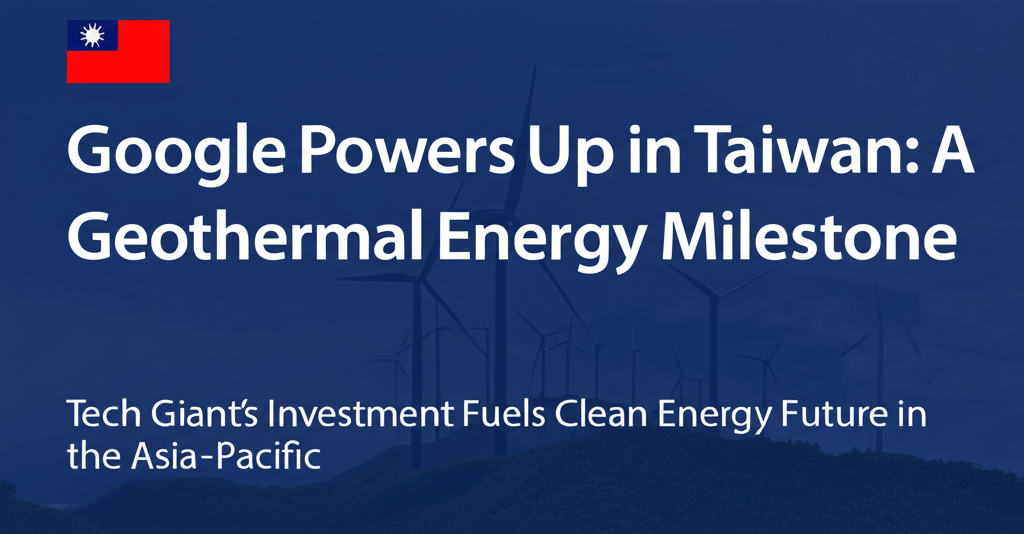Google Powers Up in Taiwan: A Geothermal Energy Milestone
Tech Giant's Investment Fuels Clean Energy Future in the Asia-Pacific

Taipei, April 15 - Google has announced a significant move into Taiwan's clean energy landscape, signing a geothermal power purchase agreement with Baseload Power Taiwan. This landmark deal marks Google's first such venture in the Asia-Pacific region, signaling a strong commitment to sustainable energy development.
The initial projects under the agreement are slated to inject 10 megawatts (MW) of "always on" power into the grid, effectively acting as a catalyst for Taiwan's geothermal market, according to an official Google blog post.
Google highlighted Taiwan's abundant geothermal resources as a key advantage, suggesting that this technology can complement existing renewable sources like solar and wind power. The company emphasized the "significant potential" of using underground heat to generate clean electricity.
"This long-term partnership with Baseload Capital, which includes an equity investment in the company, represents our latest step to accelerate the deployment of geothermal as a 24/7 clean energy technology across Asia Pacific and globally," stated Google.
The American multinational tech company further described the partnership as a crucial "milestone in Google's clean energy journey."
Official data from the Energy Administration reveals that Taiwan's current installed geothermal energy capacity, as of February 2024, is 7 MW. This illustrates the potential for substantial growth in this sector.
Baseload Power Taiwan, a subsidiary of the Sweden-based Baseload Capital, initiated its first power plant project in Hualien in 2020 and is currently in the drilling phase, according to its website.
The Baseload Power Taiwan website also indicates that four additional power plant projects are currently "ongoing."
"Our goal is to bring energy resilience and business opportunities to local communities while contributing to Taiwan's net-zero targets and the objective of 6 GW of geothermal installed capacity by 2050," the website states.
